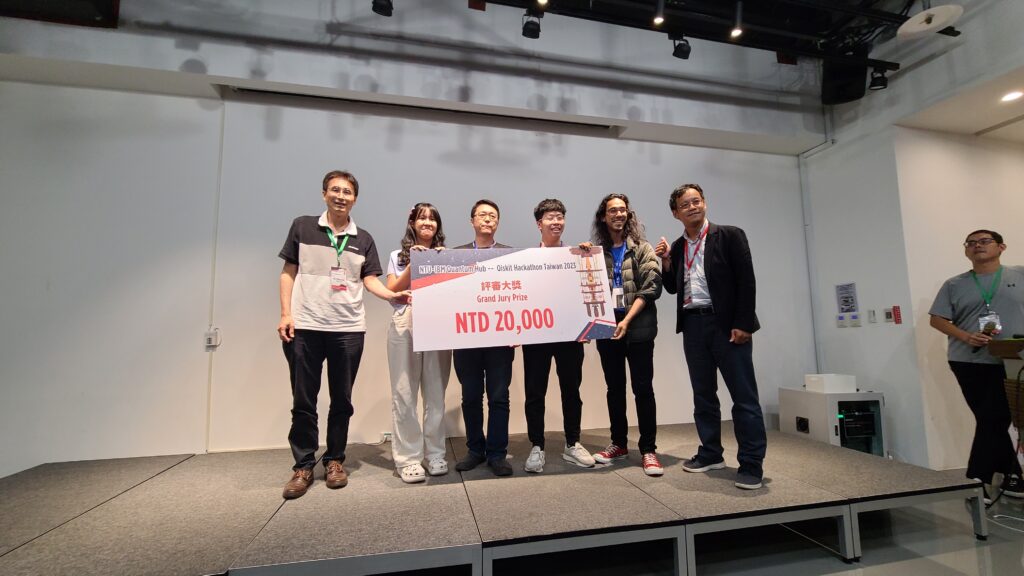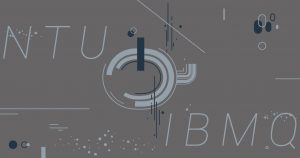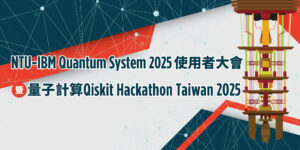“IBM Quantum Hub at NTU” held the first Quantum Computing Hackathon in 2020 at the Xitou Natural Education Area which is under the NTU Experimental Forest Administration. The Hackathon activity was suspended in 2021 due to the outbreak of the coronavirus pandemic . In 2022, the Quantum Computing Qiskit Hackathon Taiwan 2022 was held on the 11th Floor of the Syntrend Building. The 2023 NTU-IBM Quantum System Users Meeting, and the three-day Quantum Computing Qiskit Hackathon Taiwan 2023 were held on the 11th Floor of the Syntrend Building from August 8 to August 10, 2023 (The event website is at https://quantum.ntu.edu.tw/?p=8742).
The ” IBM Quantum Hub at NTU,” established with funding support from the Ministry of Science and Technology (now the National Science and Technology Council) since January 2019, not only provides a service platform in quantum computing for the academic research and interdisciplinary exchanges in Taiwan, but also carries out a crucial mission of promoting quantum information science education in Taiwan.
This year, the Hackathon event attracted more than 100 people to signup upon registration opening, and most of the applicants already have experience using IBMQ, showing that the popularity and promotion of quantum computing has been effective in recent years. The competition committee selected 60 students to participate in the three-day competition. This event also invited three foreign universities to participate: Keio University in Japan, Yonsei University in South Korea, and Czech Technical University in Prague, the Czech Republic. Each foreign school selected 6 students to participate in the Qiskit Hackathon, making the event more international and diversified, as well as more challenging and watchable.
We invited Prof. Shangjr (Felix) Gwo, the Convener, NSTC Quantum System Promotion Working Group, to give an opening remark, and invited Mr. Kenneth Wood, the Global Sales Director of IBM Quantum, and Dr. Shesha Raghunathan, the Senior Research Scientist, to give keynote speeches. To make the competition more challenging and interesting, the competition topics were announced to the contestants on site and the competition team formation was completed on the spot. Participants were asked to compile their ideas into quantum programs using Qiskit, and present their results in English to other participants and the judges for evaluation. The winning teams were selected based on the criteria such as quantum technology complexity, problem originality, solution creativity, group cooperation and expression, future social contribution etc.
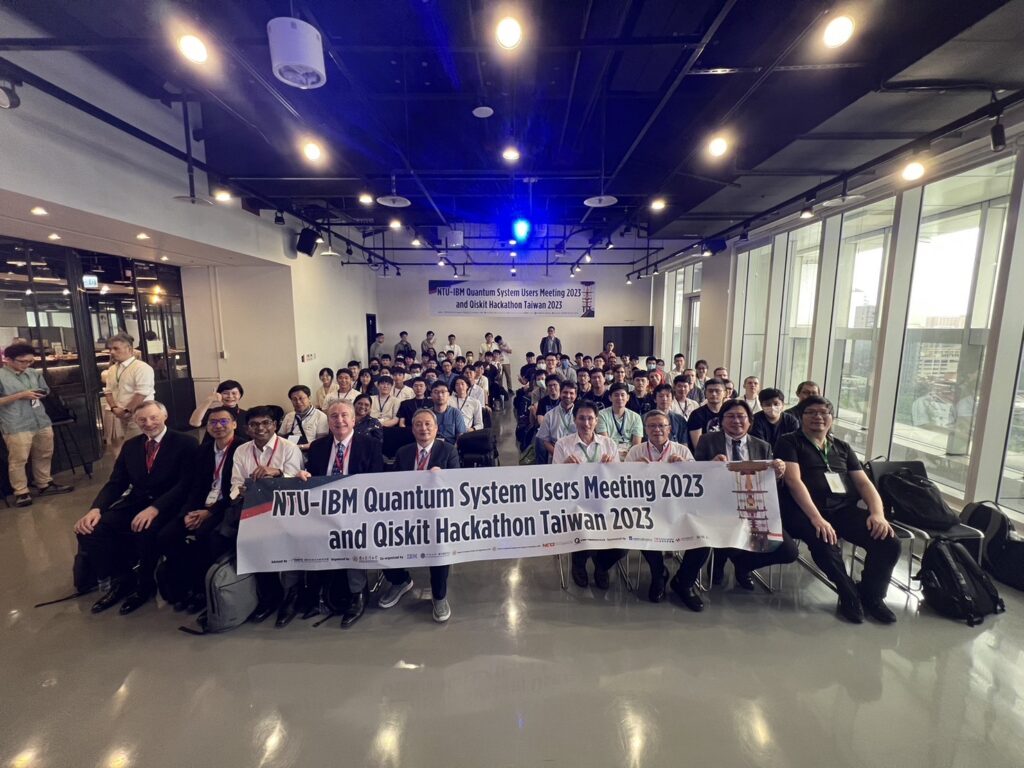
This event was mainly funded by the National Science and Technology Council and received assistance from IBM Quantum, which arranged coaches to remotely guide competition students and a quantum computing expert as a referee for competition presentations. In addition, the co-organizers of the event included Chung Yuan Christian University Quantum Information Center, Center for Quantum Science and Engineering at NTU, Center for Advanced Computing and Imaging in Biomedicine at NTU, National Center for Theoretical Sciences – Physics Division, and Taiwan Association of Quantum Computation and Information Technology (TAQCIT). Domestic companies also actively sponsored and participated in the event. In addition to sending employees to participate in the Hackathon competition, they also provided generous prizes for the competition. In addition to Grand Jury Prize and NTU-IBM Quantum Hub Prize sponsored by the National Science and Technology Council, there are also Enterprise Prizes from Foxconn, Formosa Plastics Corporation, Scientific American, and Keysight Applied Technology. IBM Quantum also provided reusable water bottles and Qiskit stickers to participants in the competition event. Cultivating experienced interdisciplinary talents and constructing and developing necessary applications are important tasks that Taiwan needs to focus on in the future development of quantum technology. Promoting the popularization of quantum computing education and learning is the key to further driving the country’s quantum technology industry to another higher level.
After three days of non-stop team efforts, the 2023 Quantum Computing Hackathon came to a wonderful conclusion. The fourteen participating teams brainstormed and discussed on topics such as optimization, quantum chemistry simulation, and quantum machine learning, and used Qiskit to implement their findings. The results of all the teams were comparably impressive, and in the end, 6 teams received the prizes.
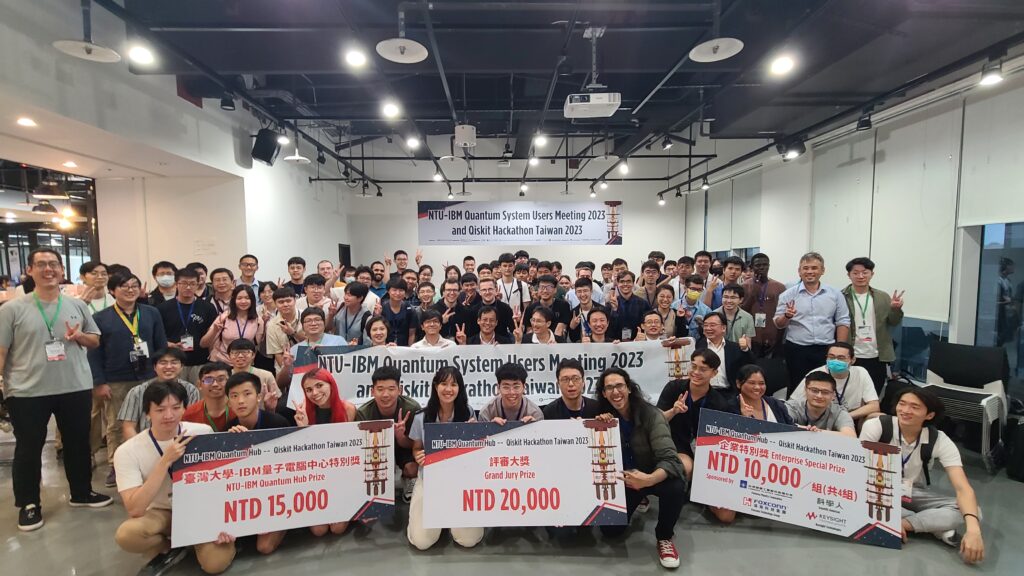
The second team applied QCNN’s quantum machine learning architecture to train on the BirdCLEF2023 data set. They used the quantum neural network model to compress the high-dimensional data set and identified the species from 264 different bird recordings with a high success rate. The result is comparable to that of the classical machine learning methods. Therefore, the second team won an Enterprise Special Prize.
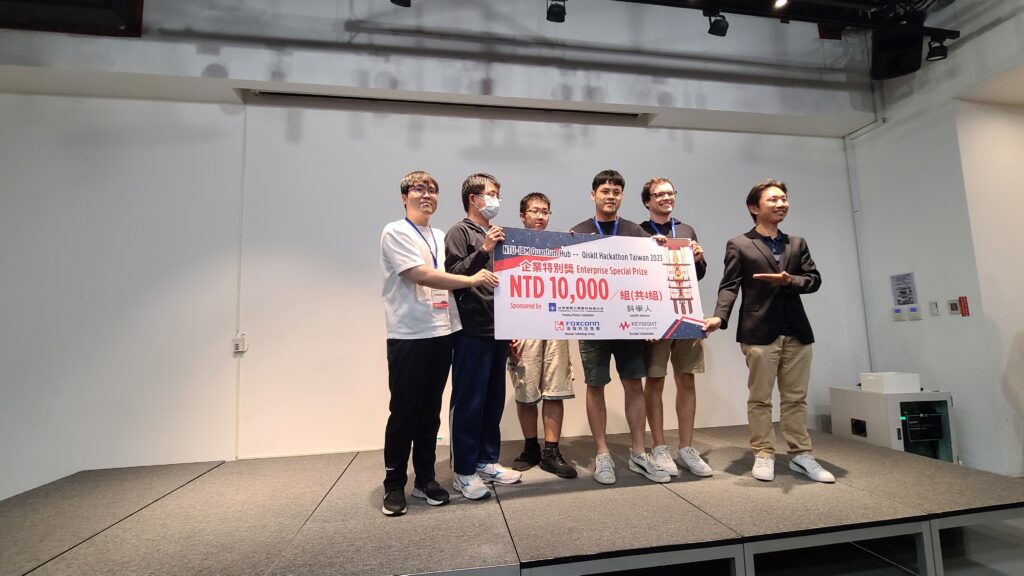
The third team also won an Enterprise Special Prize with the topic “Quantum Error Mitigation”. They implemented the Zero Noise Extrapolation (ZNE) method on a problem of quantum spin chain simulation, from which the students learned how to use the existing imperfect quantum computers to perform more accurate calculations.
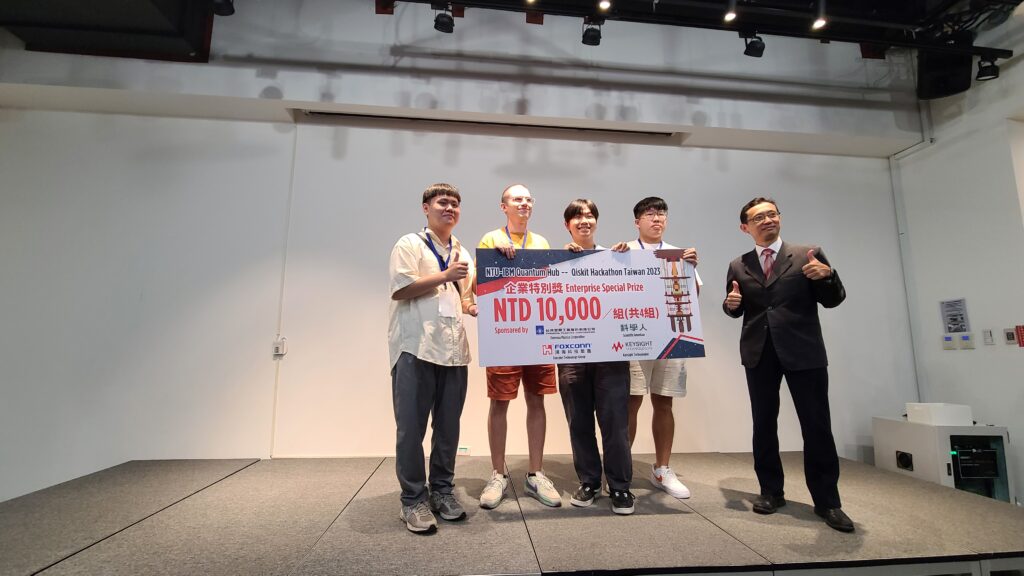
The ninth team won an Enterprise Special Prize with the topic “Classical Machine Learning for Quantum Computing”. They studied the model comparison between the classical machine learning method of SVM and the quantum machine learning of Quantum Kernel Method on the MNIST data set. The result was that SVM is superior in small data sets, while the QKM hybrid classical method could be far more accurate than pure quantum QKM. degree, and comparable to the performance of SVM.
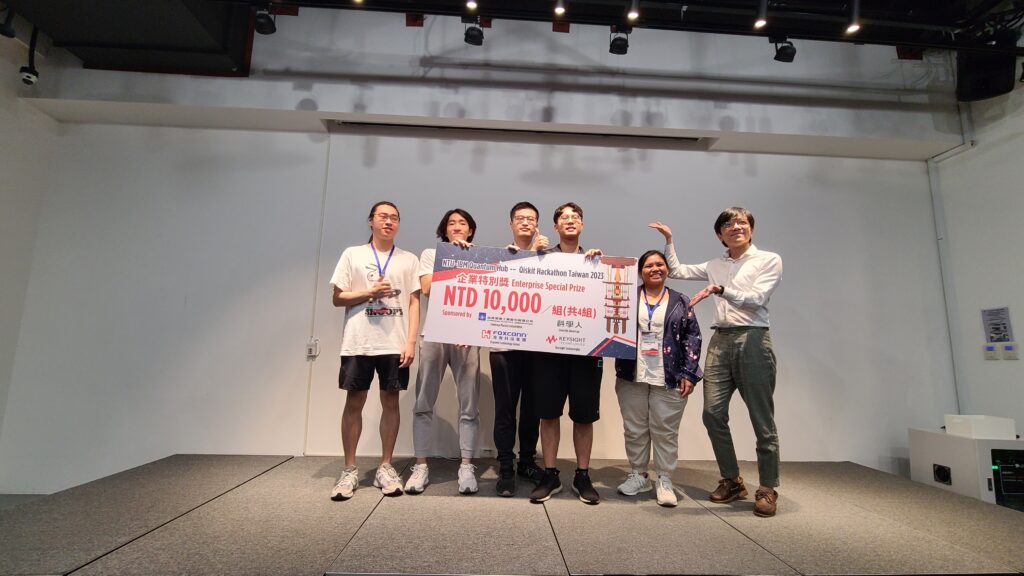
The tenth team used qubit tapering to reduce the number of qubits used in quantum chemistry calculation methods. They used VQE to calculate the ground state energy of the molecular model processed with qubit tapering and compared it with the unprocessed molecular model. Because their results achieved 99.99% accuracy using much fewer computing resources, they were awarded an Enterprise Special Prize.
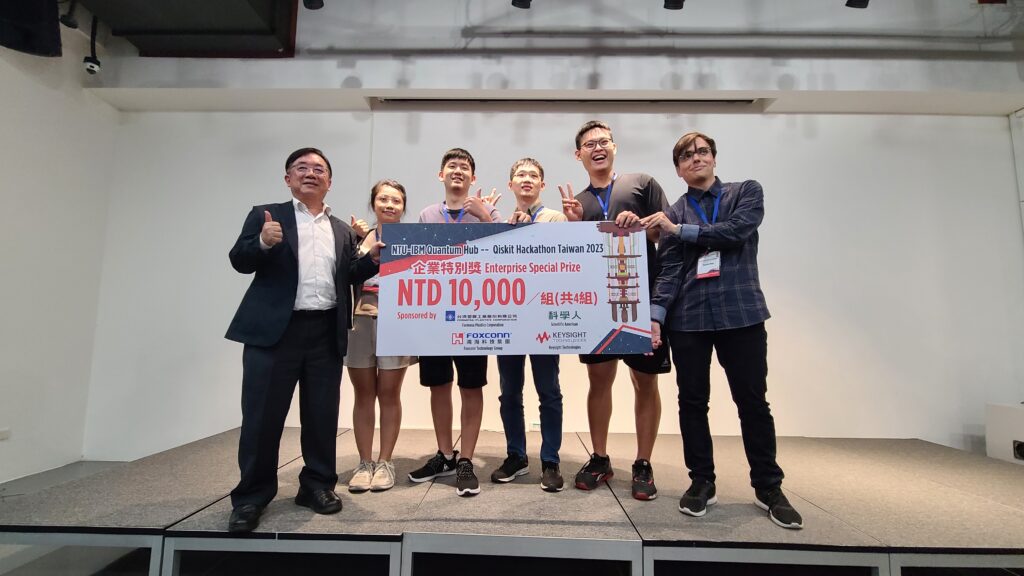
The 12th team won the NTU-IBM Quantum Hub Prize with the topic “Information compression in variational quantum circuit”. They used the Quantum Autoencoder architecture to study how to compress quantum information and achieve the purpose of reducing the size of the quantum circuits. They implemented this architecture in three different example quantum circuits and successfully demonstrated the effect of circuit compression.
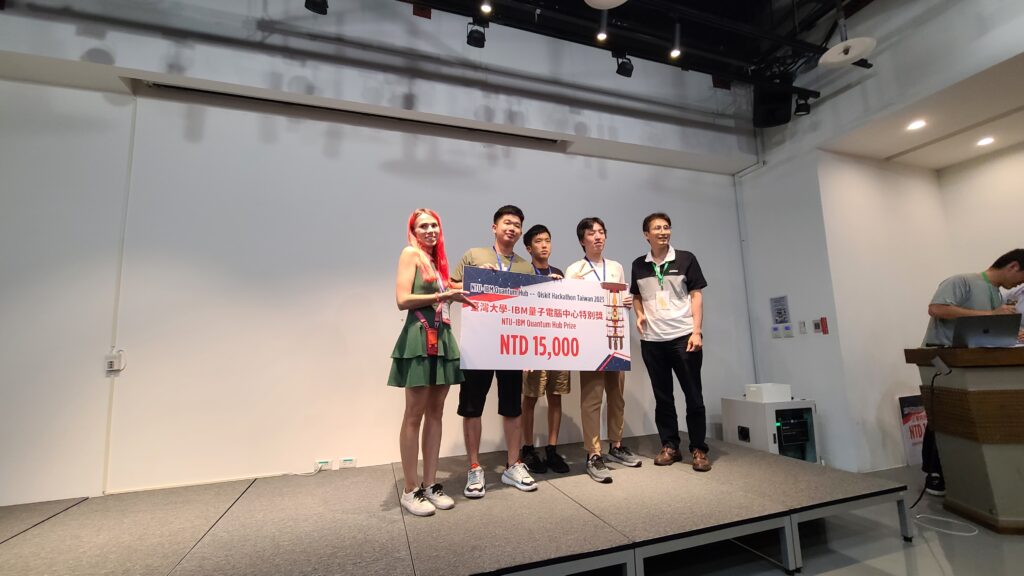
The fifth team won the “Grand Jury Prize” with the topic “Quantum state preparation”. The problem they wanted to solve was to convert the initial data required for quantum computing into a quantum state that can be run in a quantum circuit. Due to the instability of quantum states, accurately generating the initial states is a difficult challenge. They used genetic algorithms (Genetic Algorithms) to form a gene pool (Gene Pool) with small fragments of quantum circuits, and used a method similar to evolution to iterate for better genes (circuit). They applied this method to the initial state of the normal distribution and simulated it on the IBM-Q quantum computer, achieving an accuracy of 99%.
